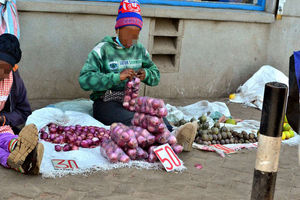Low-income countries bearing brunt of plastic pollution, report shows

A plastic recycling point at the Nyali Public Beach in Mombasa.
Despite low-income nations consuming nearly three times less plastic per person, they face a lifetime cost that is 10 times higher than their wealthier counterparts, according to a new report by World Wide Fund (WWF).
The report, released ahead of the third negotiations for a global treaty to end plastic pollution, estimates that the total lifetime costs for a kilogramme of plastic stand at around Sh22,000 in low- and middle-income countries, eight times higher than the Sh2,900 per kilogramme incurred by high-income nations.
When focusing solely on low-income countries, the cost differential rises to a staggering 10 times, with these nations burdened with costs of about Sh30,000 per kilo.
Three structural inequities embedded in the current plastics value chain not only distribute the burdens of plastic pollution unevenly among nations but also disproportionately impact those least equipped to address them.
Firstly, low- and middle-income countries lack influence over the design and production of plastic products, yet are often expected to manage them at the end of their life cycle.
Secondly, the rate of plastic production, especially for single-use plastics, far exceeds the available technical and financial resources for waste management in these countries. Thirdly, the system lacks a fair mechanism for holding countries and companies accountable for their actions or inaction on plastic pollution.
WWF International Senior Director of Policy, Influence and Engagement Alice Ruhweza said there is urgent need to overhaul the current plastics system.
“Our take, make, waste plastics system unfairly impacts our planet’s most vulnerable and disadvantaged countries. Instead of resolving the world’s plastic pollution crisis efficiently, the system shifts the bulk of the costs to those least equipped to manage them, with no accountability for those who produce and use them in the first place,” she said.
As Kenya prepares to host the third negotiations for the global treaty to end plastic pollution, the report’s findings hold significant implications for the country.
Despite banning single-use plastic bags six years ago, Kenya continues to grapple with illegal imports, underscoring the transboundary nature of the issue and the crippling inequities in the plastics value chain.
The National Environment Management Authority recently released a notice warning manufacturers and importers to desist from manufacturing and importing plastic carrier bags and flat bags.
The report also comes at a time when Africa is predicted to produce 116 million tonnes of plastic waste annually by 2060 should it fail to curb its demand for plastic.
Much of the plastic in African nations is in form of packaging, which often ends in landfills, dumped or burned. Besides polluting the environment, they act as breeding grounds for mosquitoes, increasing the risk of malaria.





